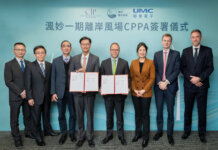On July 3, AMSC and Sinovel Wind Group Co. Ltd. entered into a settlement agreement to resolve all existing commercial disputes between the parties. In January, Sinovel, a China-based wind turbine company, was convicted of stealing trade secrets from AMSC, a U.S.-based company formerly known as American Superconductor Inc.
Under the terms of the settlement agreement, Sinovel has agreed to pay AMSC an aggregate cash amount in Renminbi (RMB) equivalent to $57.5 million, consisting of two installments. Sinovel has agreed to pay AMSC the first installment of $32.5 million by July 5 and the second installment of $25 million within 10 months after the U.S. District Court delivers the first sentence against Sinovel, which is expected to occur on July 6.
Wenyuan Wei, former Sinovel chairman and a current Sinovel shareholder, has delivered a letter of guarantee to AMSC for the second payment, should Sinovel fail to make the payment by the due date.
In addition, pursuant to the terms of the settlement agreement, AMSC and its wholly owned Austrian subsidiary, AMSC Austria GmbH, have granted Sinovel a non-exclusive license for certain AMSC intellectual property to be used only in Sinovel’s doubly fed wind turbines. In the event that Sinovel or Wei does not make the second payment by the due date, the agreement provides that the non-exclusive license will terminate.
AMSC and Sinovel have also agreed to submit withdrawal applications to terminate the various legal proceedings between them – with the right to re-file – to the relevant Chinese courts and the Beijing Arbitration Commission. In addition, AMSC and Sinovel have agreed to a mutual release covering all subject matters of the commercial disputes, effective upon the completion of the second payment.
“We valued the past cooperation between Sinovel and AMSC, which was heralded as the example of Sino-U.S. cooperation in the new energy area,” states Daniel P. McGahn, president and CEO of AMSC. “Through Sinovel’s and AMSC’s joint efforts, we have signed a settlement agreement to resolve the previous disputes in a constructive manner that we believe will enable us to move on with our respective businesses. This closes a challenging chapter for AMSC.”
According to the U.S. Department of Justice (DOJ), Sinovel stole proprietary wind turbine technology – software that regulates the flow of electricity from turbines to electrical grids – from AMSC in order to produce its own turbines. At the time of the theft in March 2011, Sinovel had contracted with AMSC for more than $800 million in products and services to be used for the wind turbines that Sinovel manufactured, sold and serviced.
The evidence presented at the January trial showed that Sinovel conspired with other defendants to obtain AMSC’s copyrighted information and trade secrets in order to produce wind turbines and to retrofit existing wind turbines with AMSC technology without paying AMSC the more than $800 million it was owed and promised. The evidence also showed that AMSC suffered severe financial hardship: It lost more than $1 billion in shareholder equity and almost 700 jobs, representing over half its global workforce, according to the DOJ.
“We thank the Chinese, American, Austrian and EU governments for their attention, understanding and support,” adds McGahn.




